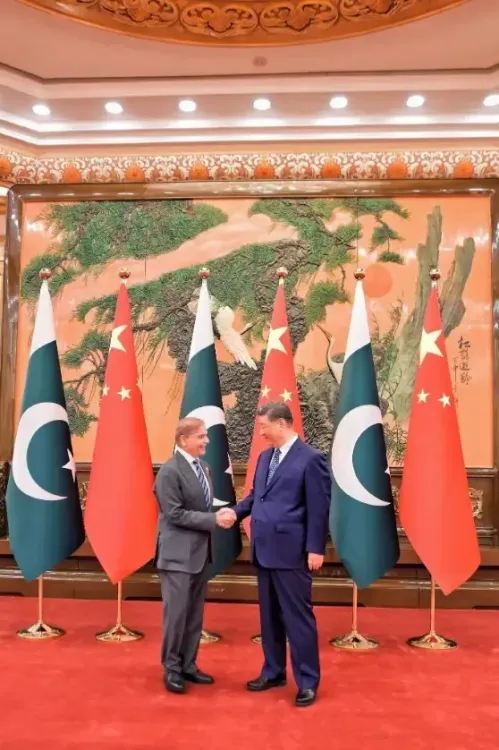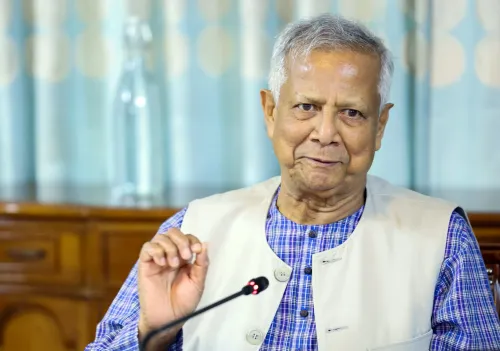Is China Reassessing Its Projects in Pakistan Due to Delayed Repayments and Security Concerns?

Synopsis
Key Takeaways
- Beijing is reassessing its role in CPEC due to financial and security challenges.
- CPEC 2.0 focuses on sustainable development rather than infrastructure.
- China has invested $25 billion in Pakistan over the past decade.
- Main Line-1 railway upgrade faced delays and funding issues.
- Security risks have increased for Chinese nationals in Pakistan.
Beijing, Oct 21 (NationPress) The combination of delayed loan repayments and persistent security risks to Chinese nationals in Pakistan has led Beijing to reevaluate its involvement in crucial China Pakistan Economic Corridor (CPEC) projects, according to a report released on Tuesday.
The report highlights that the newly defined CPEC 2.0, which was established during Pakistan Prime Minister Shehbaz Sharif’s visit to China in early September, prioritizes initiatives in agriculture, electric vehicles, solar energy, health, and steel. This represents a departure from the previously emphasized infrastructure investments that aimed to cement China's strategic presence in Pakistan.
“During Prime Minister Shehbaz Sharif’s visit to China in early September, both nations launched what is termed as CPEC 2.0. The revised framework pivots away from extensive infrastructure projects towards sectors that support sustainable development and industrial modernization,” as reported by Uzbekistan's media outlet ‘Darakchi’.
Originally, CPEC was valued at approximately $62 billion and aimed to link China's Xinjiang region to Pakistan’s Gwadar Port through a network of roads, railways, pipelines, and energy initiatives. Over the last decade, Pakistan has reportedly attracted around $25 billion in direct investments from China.
One of the significant projects from the initial phase was the Main Line-1 (ML-1) railway upgrade, a $6.8 billion initiative to modernize Pakistan’s primary railway corridor from Karachi to Peshawar. This project was anticipated to enhance Pakistan’s transportation capacity and solidify its position as a regional transit hub.
However, the report indicates that evolving economic conditions and security issues have prompted both nations to reconsider the extent and framework of their collaboration.
According to various sources, Pakistan is currently seeking multilateral funding for sections of the ML-1 railway project, with the Asian Development Bank (ADB) contemplating potential participation.
“Chinese firms have encountered obstacles related to late payments in Pakistan’s energy sector, while Islamabad has been managing its external debt responsibilities along with negotiations with international financial institutions. These dynamics, in conjunction with global economic challenges, have led to a more cautious approach to Chinese investments,” the report emphasized.
“Simultaneously, security concerns have created risks for workers and facilities associated with CPEC. Numerous incidents in recent years have targeted Chinese nationals and project sites, highlighting the urgent need for improved protective measures,” it concluded.









